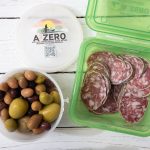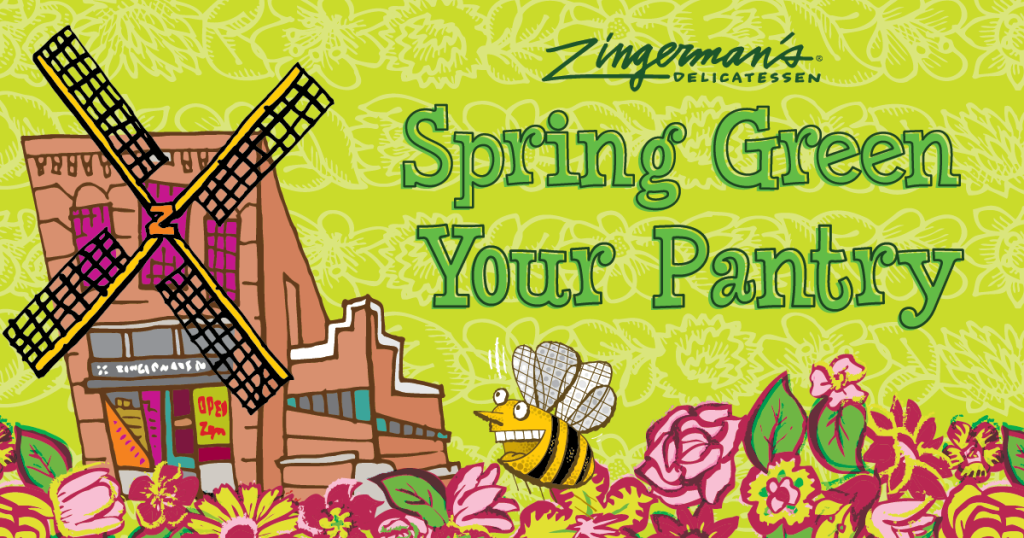
Officially, Earth Day might be April 22, but in many ways, we celebrate Earth Day every day, from championing reusable containers to our earth-friendly expansion to choosing to work with fellow artisans with the same passion for the planet.
The Zingerman’s Community of Businesses’ 2032 Vision includes a section on working in harmony with nature, giving us all a goal of adopting a model of sustainability to all aspects of our work. For the first time in our history, we’re adding guiding principles to acknowledge our long-held belief and commitment to being mindful of our environmental impact and taking proactive steps to improve it, choosing full-flavored, traditional foods that are produced with minimal environmental impact and contribute positively to our global community, and making sure we’re aware of how we’re contributing to the well-being of our planet with our choices.
The Deli has always had high standards for the quality of our ingredients and products, including standards for where they are sourced and the environmental footprint of their production are important to us.
And while we’re extremely choosy all of the time, some products really rise to the top. So we’re celebrating Earth Month by highlighting a handful of producers to highlight their above-and-beyond standards in creating products that honor people and our planet.
- Vendors that are dedicated to the ethical treatment of others, using Fair Trade and Direct Trade models to ensure workers get fair pay and help raise social standards.
- People farming in a way that not only takes care of the land and the animals, but sets standards for doing so in a way that enhances the health of the soil and increases biodiversity.
- Companies that are committed to working in their local communities, helping to create employment opportunities for Indigenous peoples.
- Folks fighting food waste and people working to preserve traditional foodways.
And some are doing combinations of these things!
Get ready to Spring Green Your Pantry (much more fun and flavorful than spring cleaning):
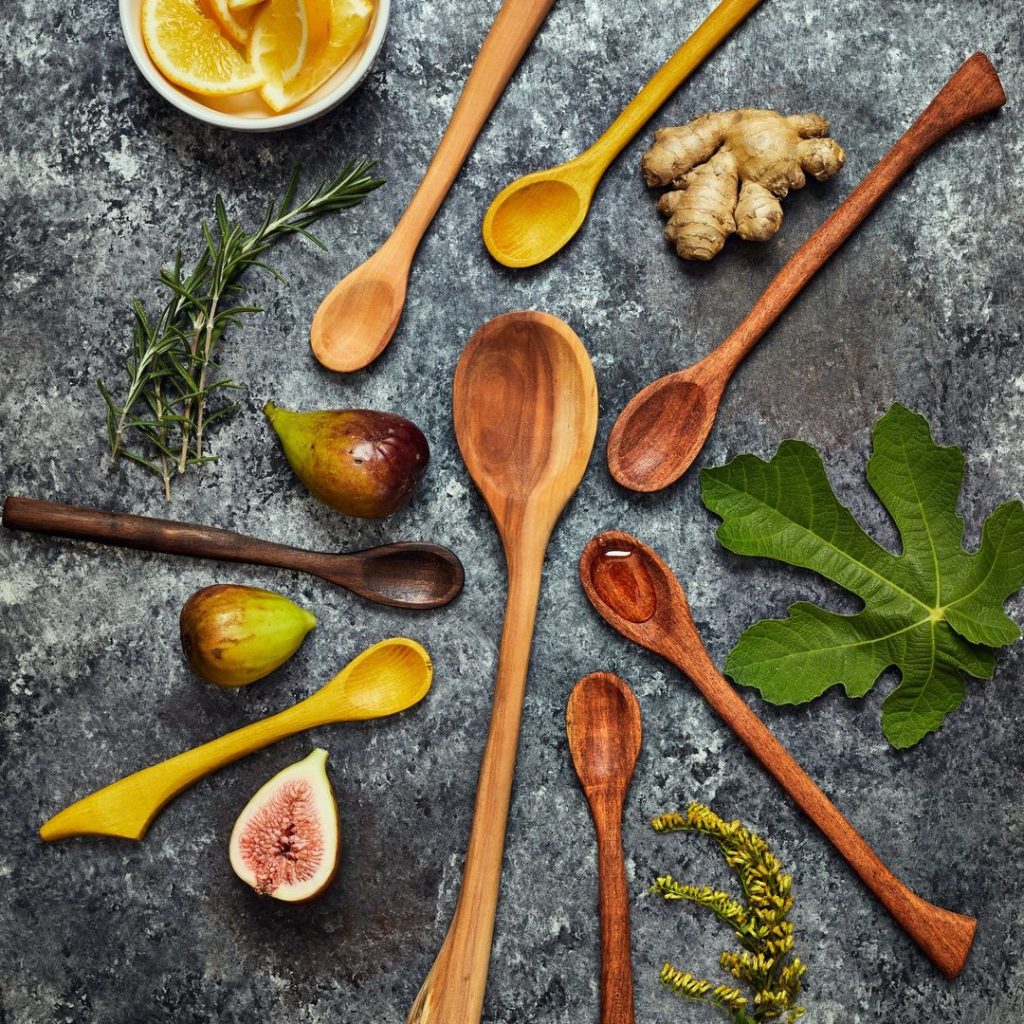
Appalachian Beekeeping Collective
The Appalachian Beekeeping Collective (ABC) is a project of Appalachian Headwaters, a non-profit organization working to restore formerly mined forest land and to bring jobs to the mountains of Appalachia. The Collective is making beekeeping in southern West Virginia and southwestern Virginia as easy as, well, ABC! They recruit, educate, and support beekeepers, resulting in increased environmental stewardship and sustainable income creation for local communities. Check out their honeys and learn more about ABC on our blog.
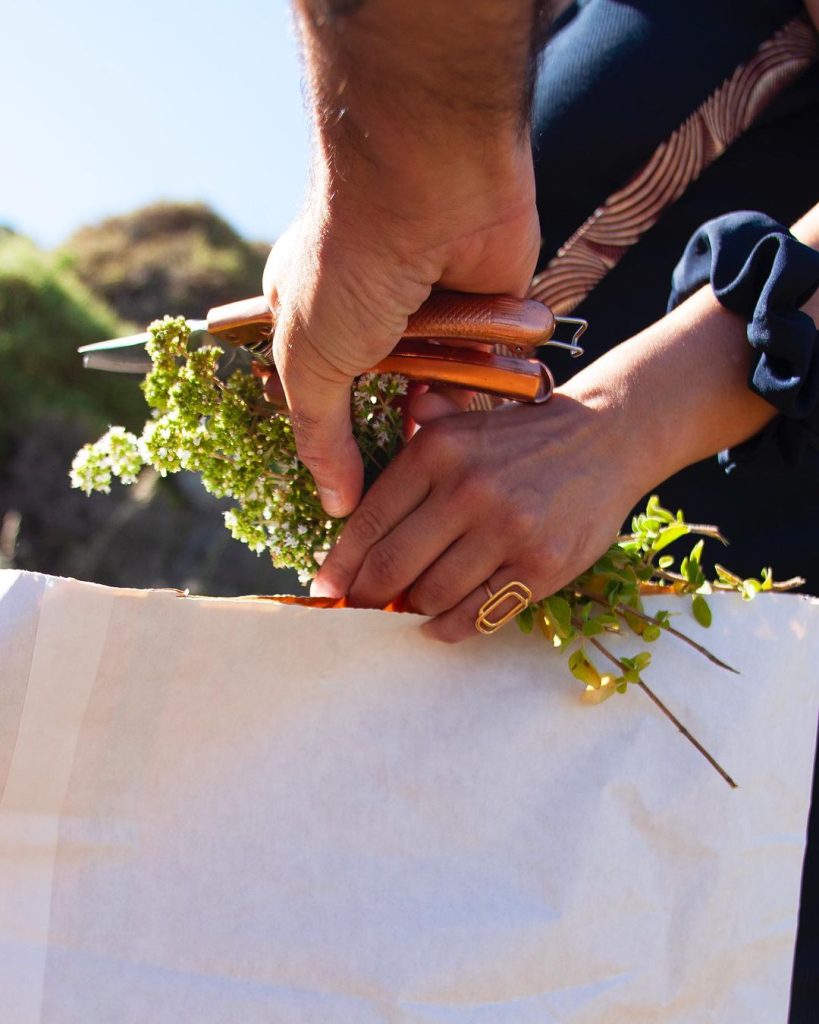
Daphnis and Chloe
A small-batch culinary herbs and spice purveyor in Athens, all of their products are indigenous to Greece, and up until now, they’ve rarely been available elsewhere. Founder Evangelia Koutsovoulou travels the country for superior herbs, sourcing from small organic farms where she’s on a first-name basis with the growers. Daphnis and Chloe is helping to support the local economy; creating a market for forgotten heirloom varieties; and bringing flavorful ingredients to us, like wild purple thyme flowers, hand-picked sesame seeds, and slow-smoked chili flakes. Check out their products and read more about Daphnis and Chloe on our blog.
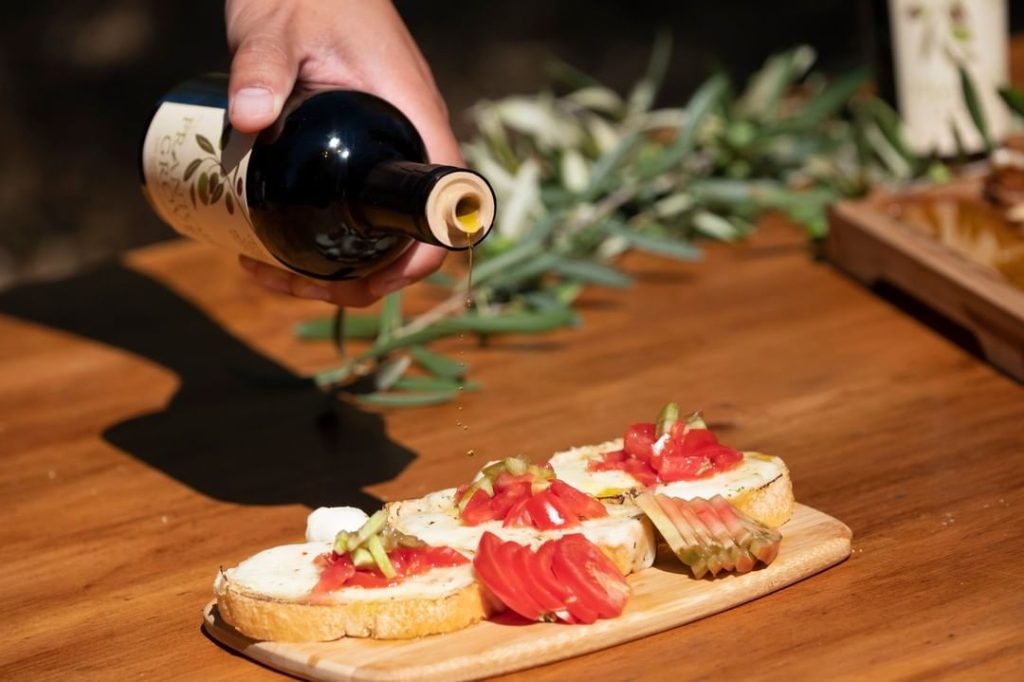
Frontoio Grove
A family-owned olive oil producer with an organic orchard and a state-of-the-art olive mill located in California’s Santa Clara Valley, their name comes from their product. Frantonio is the name of the olive cultivar they grow, it’s originally from Tuscany, Italy. Their goal has always been to create delicious, minimally processed oil, but when a weird weather year resulted in a nonexistent olive crop, they turned to regenerative agriculture to help their trees build resilience to climate change. It’s good for the ecosystem and restores soil health, but it has also created improvements to the quality of their produce, resulting in a more flavorful Olive Oil.
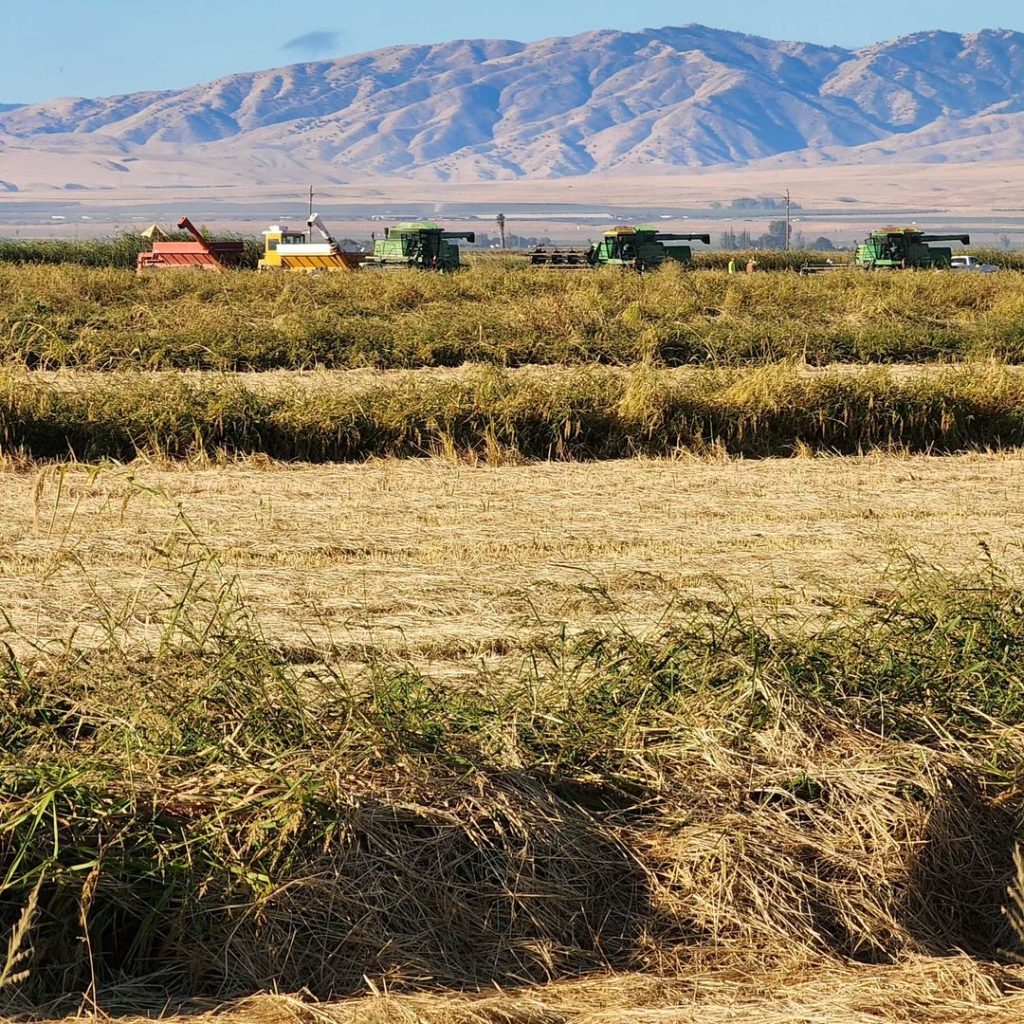
Koda Farms
With fastidious attention to detail from seed to harvest to drying and milling, Koda Farms continues a family legacy established in California nearly a century ago in 1928 by Keisaburo Koda, making it the oldest family-owned rice farm in the state. In the 1950s, they started growing Kokuho Rose, an organic, medium grain, brown rice with a delicate flavor and a creamy texture. Growing this heirloom requires significant effort, in part because it takes years to accumulate sufficient seed to sow this proprietary rice. So Koda Farms’ current owners, siblings Ross and Robin Koda (the grandchildren of Keisaburo) maintain their own private seed nurseries and they go to great lengths to make sure each variety remains pure. Both Kokuho Rose brown rice and Kokuho Rose white rice have a lovely delicate flavor and creamy texture.
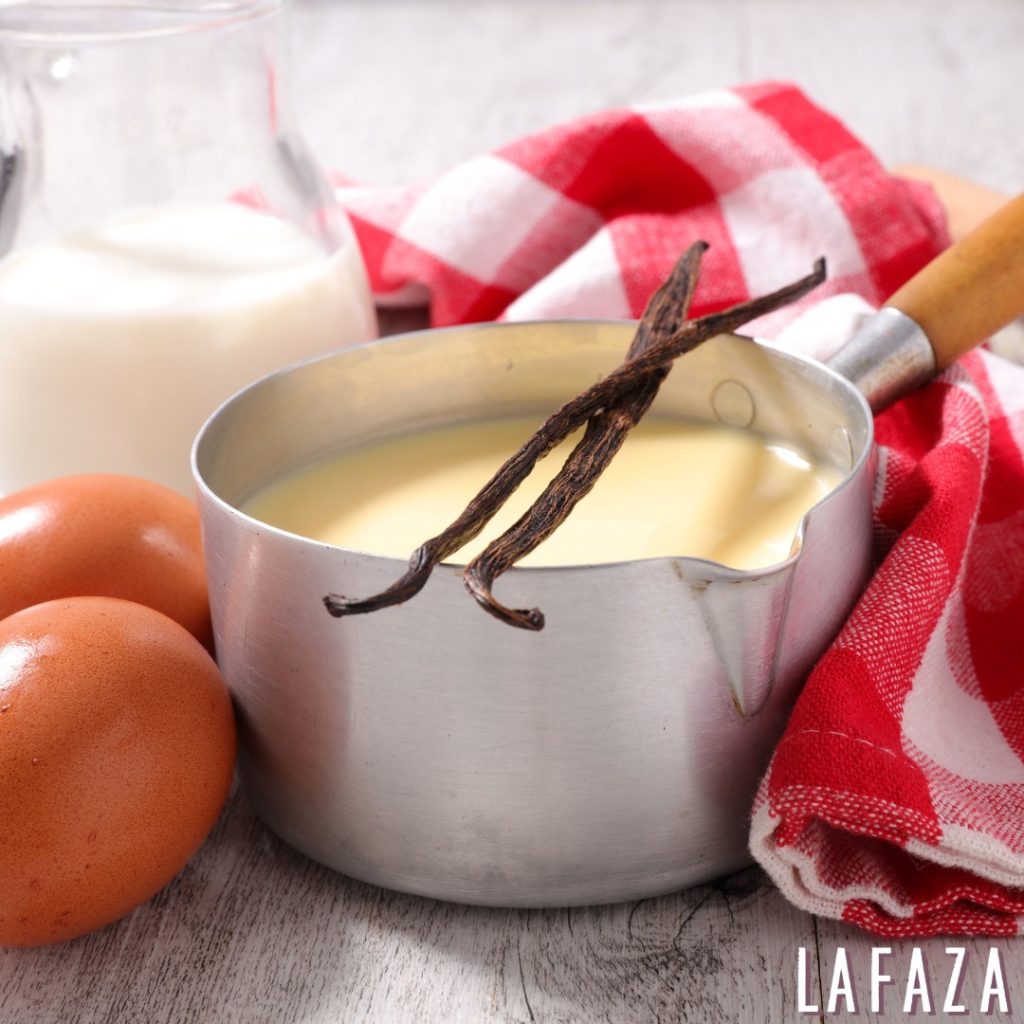
LAFAZA
Partnering directly with small farmers and grower cooperatives since 2005 enables LAFAZA to produce and export some of Madagascar’s highest-quality natural vanilla in a way that prioritizes environmental conservation and fair pay. The small-holder farmers’ dense agroforestry systems act much more like a healthy forest, than large mono-cropped plantations, providing habitat and supporting rich biodiversity—many of them have been growing and curing vanilla beans in environmentally friendly ways for over four generations. LAFAZA is proud to invest in their cooperatives and help support libraries and community centers in the rural forest communities where the vanilla is grown. LAFAZA’s Direct Trade business model allows them to pay farmers a premium price for exceptional vanilla beans that come to us in multiple forms: Pure Vanilla Extract, Ground Vanilla Beans, and Whole Vanilla Beans. Read more about LAFAZA vanilla on our blog.
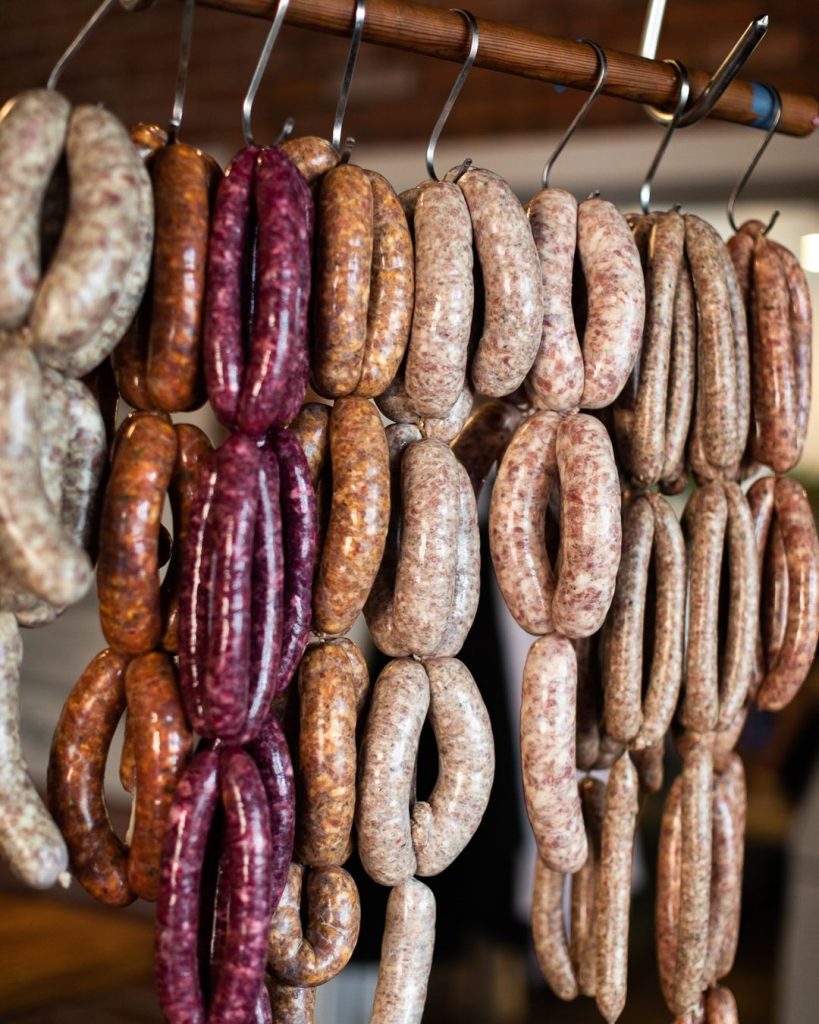
Marrow Detroit Provisions
We’ve been collaborating with Marrow Detroit Provisions since 2020 to curate Butcher’s Monthly, a big box full of foods that you just won’t find anywhere else (available as a one-time purchase or as a monthly subscription). Marrow has become known for being a respectable source of wholesome meats sourced from trusted Michigan farms that are committed to regenerative and sustainable animal-raising practices. Every Butcher’s Monthly box contains freshly butchered, quality meat from people we trust, direct from credible farmers equally invested in our shared agricultural and culinary communities. (And we always round out those offerings with full-flavored complements, including pantry staples and signature specialties from the Deli and our network of local farmers and producers in Washtenaw County.) Read more about Butcher’s Monthly and check out some of the recipes we’ve shared in past boxes on our blog.
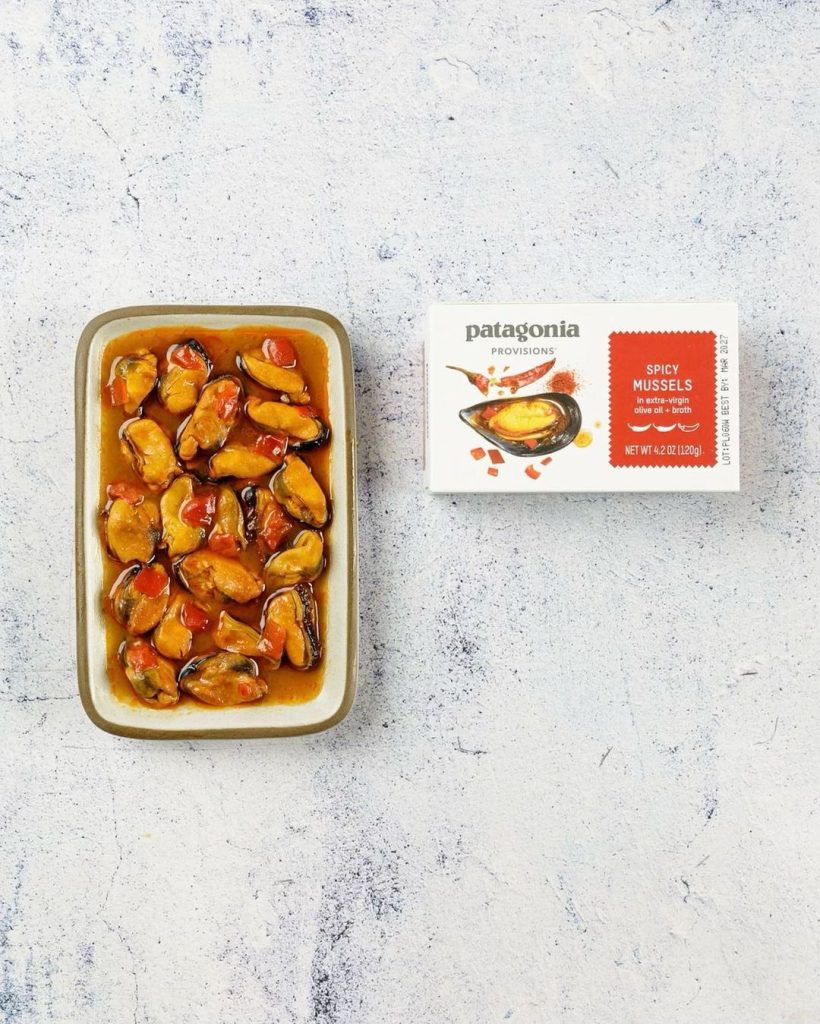
Patagonia Provisions
A business venture by yes, the outdoor clothing brand, Patagonia Provisions is taking principles of sustainability and innovation and applying them towards a new kind of future filled with deeply flavorful, nutritious foods that restore, rather than deplete, our planet. In the process, they are developing standards that can be shared and utilized by other producers and supporting research and development projects that have the potential to radically improve the current approach to food production. From sourcing mackerel caught using traditional hook-and-line techniques to making pasta with Kernza®, a revolutionary new grain that prevents erosion and nourishes the soil, supporting planet-positive goals has never tasted so good. Check out their products and learn more about Patagonia Provisions, their Smoked Mackerel, and their Kernza Fusilli on our blog.
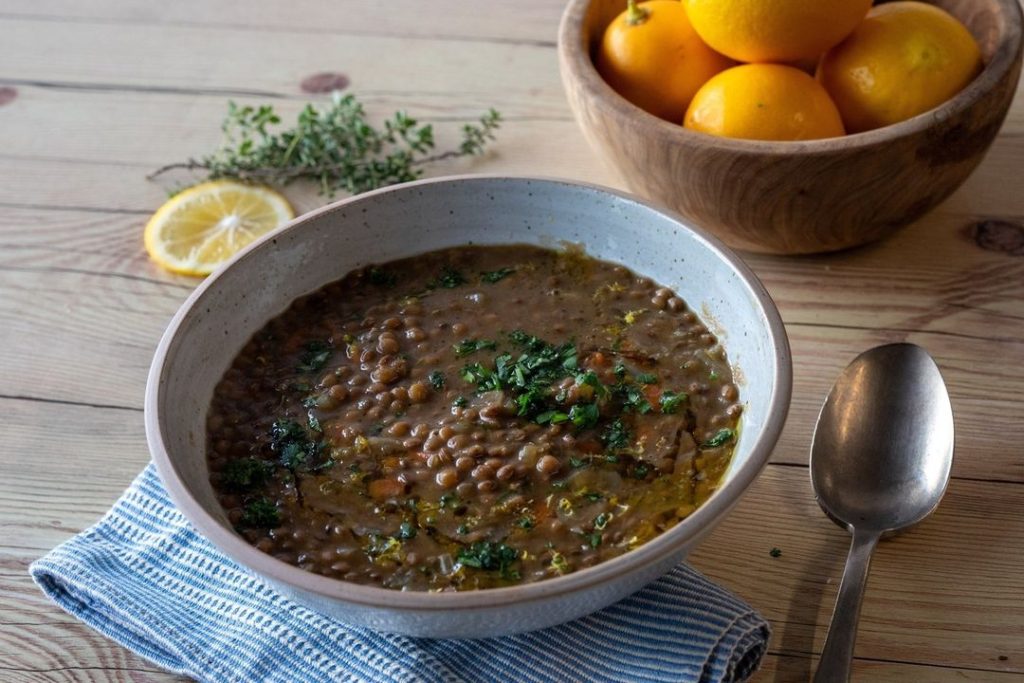
Rancho Gordo
Rancho Gordo knows heirloom beans. They are more difficult to grow and have a lower yield, but the payoff is in their unique flavors and textures. Rancho Gordo believes that creating a market for at-risk crops is the best way to save them. They’ve taken that commitment up a notch with The Rancho Gordo-Xoxoc Project, a collaborative effort working “to help small family farmers in Mexico continue to grow their Indigenous beans, despite international trade policies that seem to discourage genetic diversity and local food traditions.” It creates a win-win situation—the farmers have the financial stability of pre-selling their crop and can continue growing the varieties they know best, thereby preserving their traditions, and we get access to incredible beans that would otherwise be nearly impossible to try. Originally from Oaxaca, Mexico, Ayocote beans (like the Ayocote Blanco and Ayocote Morado) were among the first cultivated crops in the Americas.
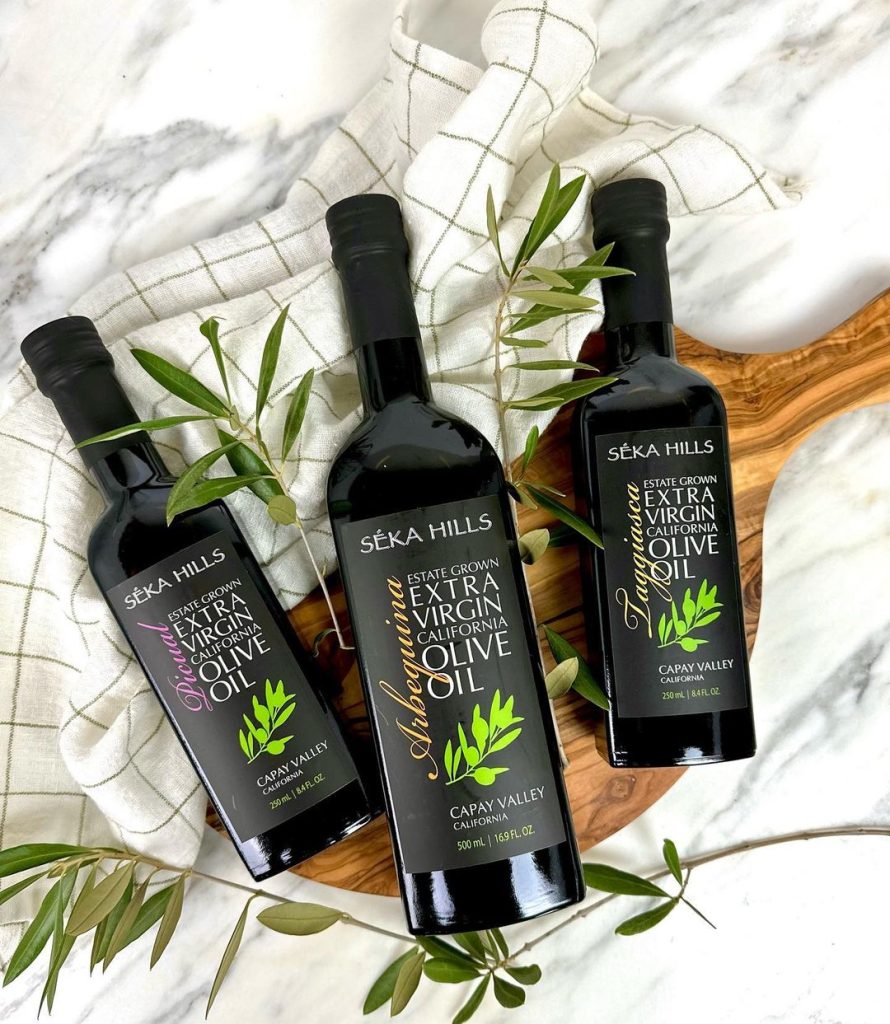
Séka Hills
Séka Hills is owned and managed by the Yocha Dehe Wintun Nation, who inhabited the land in Northern California’s Capay Valley for more than 4,000 years. As the historical inhabitants of the land, they are focused on preserving and protecting it for themselves and future generations. Yocha Dehe Farm and Ranch works closely with local and national experts and agencies to employ the newest technologies and best practices in caring for their farmland, rangeland, and water resources, like irrigating their fields with a high-efficiency underground drip system to prevent water waste, placing more than 1,200 acres of their land in conservation easement, and restoring riparian land banks to curb erosion. They own one of the most diverse farming operations in their county, evident in their diverse product line; we carry Séka Hills’ Arbequina Olive Oil, Wildflower Honey, and Beef Jerky. Check out their products and learn more about Séka Hills on our blog.
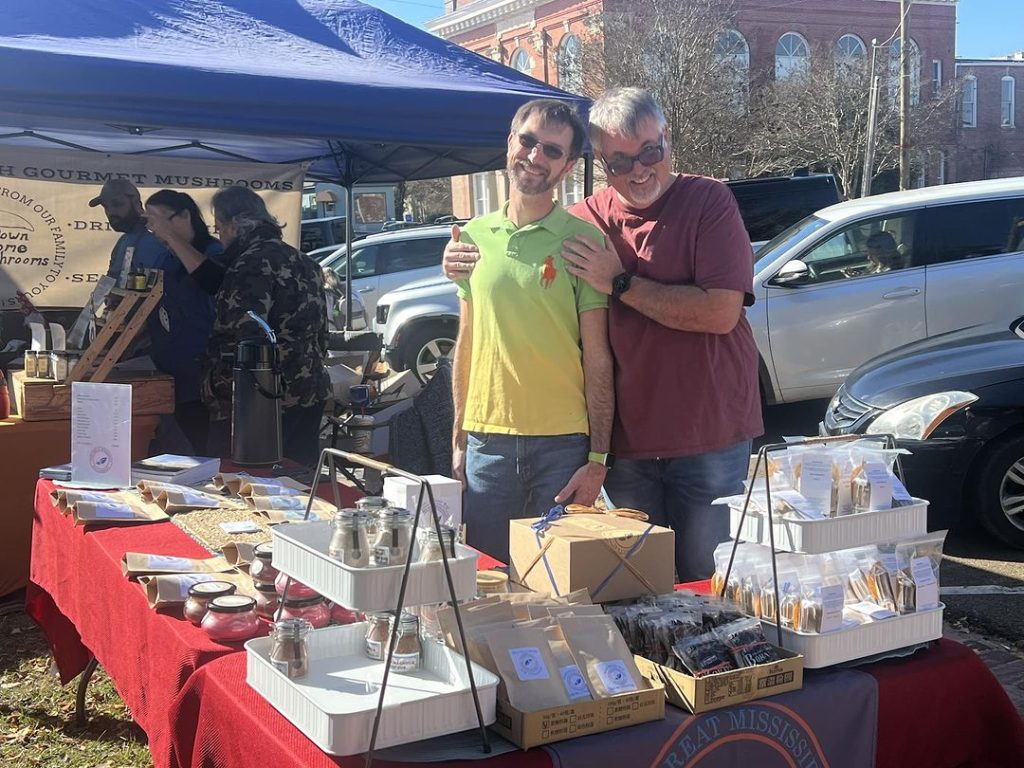
The Great Mississippi Tea Company
Their farm-driven mission is to revolutionize the tea industry, aspiring to set the standard in American tea science, employment ethics, and sustainability while providing an exceptional cup of tea. No pesticides or fungicides are used in their garden. Pickers and staff are paid a living wage. Traditional picking and shaping methods are used alongside cutting-edge technology and novel techniques resulting in an exceptionally unique tea grown, picked, and processed right here in the U.S. We think everything they’re doing is tea-riffic, but truth be told, their Black Magnolia and Mississippi Queen teas won us over on taste alone.
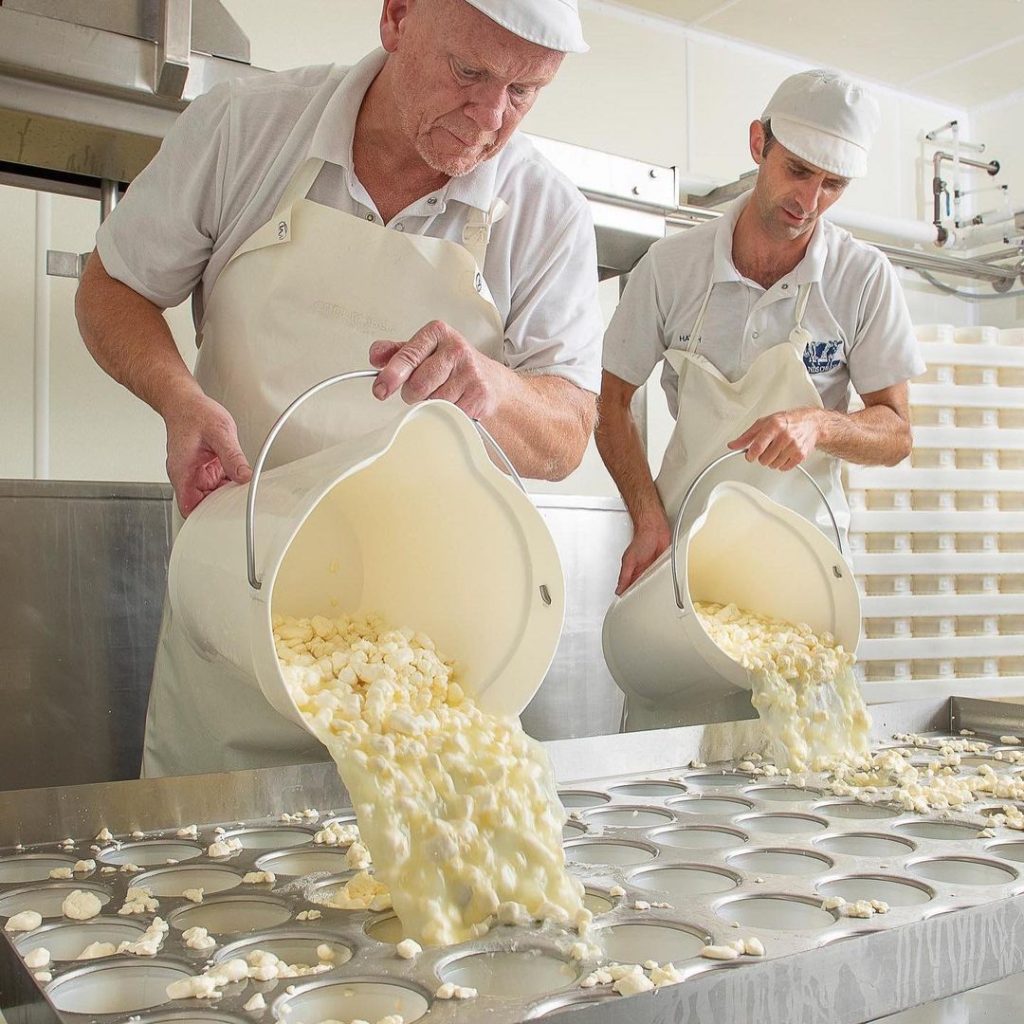
Uplands Cheese
Unlike most modern dairy farms that keep cows in barns year-round and milk them all year long, Uplands’ herd of 200 cows is pasture-raised and milked seasonally. It’s a method in line with an older, traditional style of dairy farming. They practice rotational grazing (just what it sounds like, the cows are regularly moved to new sections of pasture), which benefits the cows, the land, and us, the consumers! The cows always get fresh grass, along with lots of fresh air and exercise. The land never gets overgrazed, allowing it time to re-grow for the next grazing cycle and the farm’s steep hillsides suffer from less erosion. And, since grass-fed milk is so flavorful, we get better tasting cheese, like Pleasant Ridge Reserve, their signature product and a staple of almost every cheese board made at the Deli. Learn more about Uplands Cheese and Pleasant Ridge Reserve on our blog.
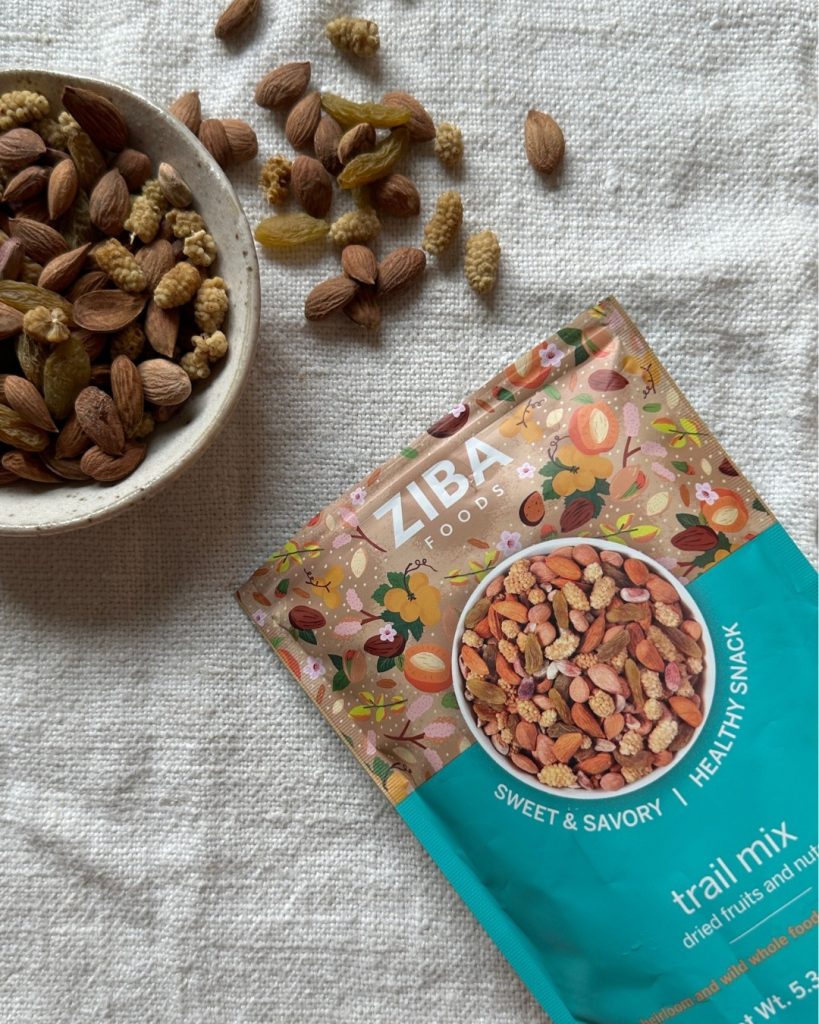
Ziba Foods
An artisanal nut and dried fruit company based in Afghanistan to bolster the local economy, Ziba Foods is also focused on empowering Afghan women. Their workforce (staff and management) is 80% female, has the security of year-round employment (despite the cyclical nature of the agriculture industry), and has access to educational opportunities, including English lessons and ongoing industry-related training. The farmers Ziba works with follow organic standards—they don’t use synthetic fertilizers, pesticides, or chemicals—and nothing unnecessary is added—no artificial ingredients, no preservatives, no added sugar. Ziba’s only addition is an occasional light dusting of Afghan salt, like on the baby pistachio kernels foraged from the mountainsides of Samangan. And, bonus: Ziba’s dried fruits and nuts are naturally nutrient-dense because they come from heirloom and wild-grown varieties, like sun-dried Kandahar figs and wild-harvested white mulberries. Check out their products and learn more about Ziba Foods on our blog.
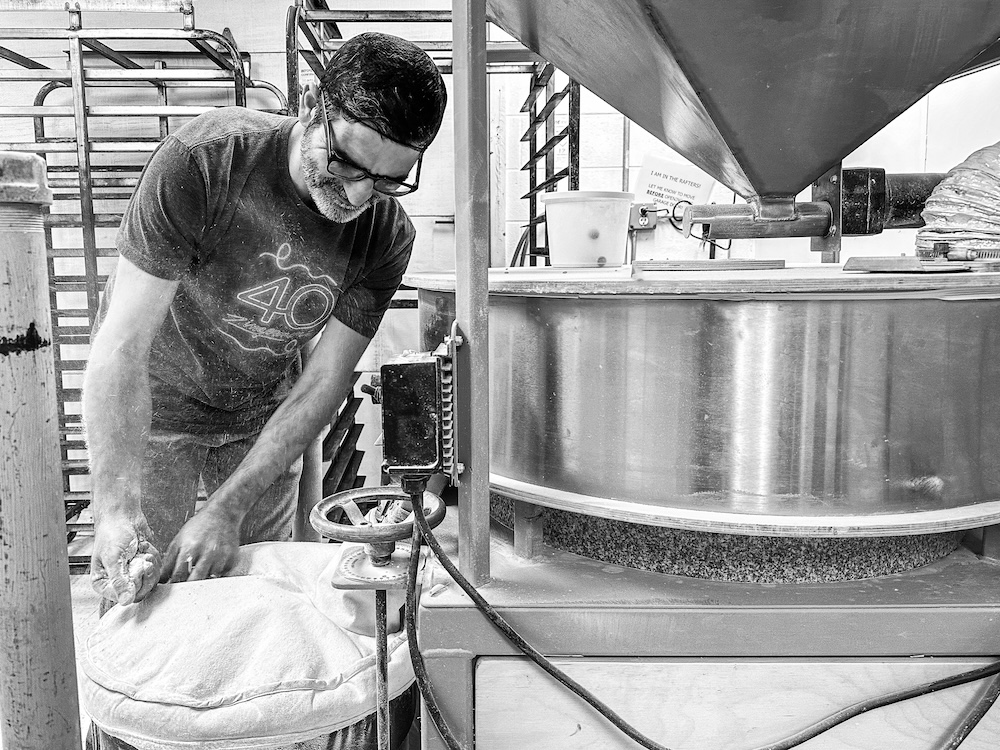
Zingerman’s Bakehouse
Our partner business Zingerman’s Bakehouse has been freshly milling whole grains (FMWG) on-site since 2018 and continues to introduce more FMWG into their products (the benefits include preserving traditional baking methods and reducing food waste, among many others). They’re also supporting regional agriculture and encouraging Michigan grain growers to return to growing heirloom grain varieties. One flavorful example is True North, a naturally leavened loaf made with Michigan-grown, high-extraction, hard red spring wheat flour milled by our friends at Janie’s Mill in Ashkum, Illinois. (The “high-extraction” part means that the stone-ground milling process leaves 80% of the wheat kernel—the bran, endosperm, and germ—in the flour for great flavor, texture, and nutrition; only a small fraction of the bran has been sifted out.) Order a loaf ASAP, place an advance order, and read more about True North on our blog.
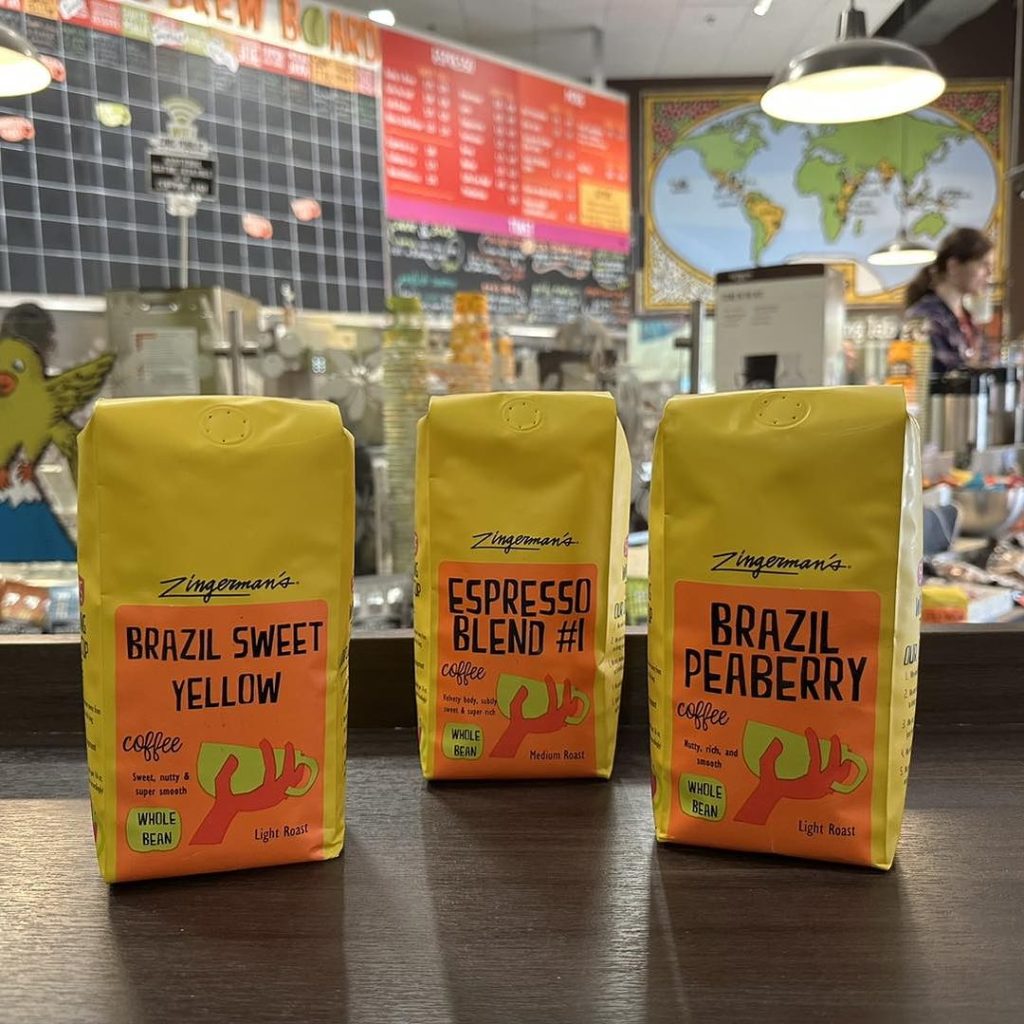
Zingerman’s Coffee Company
Another of our partner businesses, Zingerman’s Coffee Company has been working with Daterra Estate in Brazil, the source of some of the world’s best Arabica coffee, for over 15 years. The word Daterra means “of the earth,” and the aptly named farm is dedicated to sustainable practices. The farm has a large composting area, recycles bean-washing water, and has set aside a large portion of the estate as permanent wetlands to help sustain local wildlife and agriculture. We’re not the only ones who are impressed with their efforts—the Rainforest Alliance awarded Daterra a Level A certification, the highest sustainability award ever given to a farm! The partnership has resulted in two offerings thus far: Brazil Sweet Yellow, an exceptional blend of yellow-ripening cultivars, and Espresso Blend #1, a sophisticated blend of different coffee plant varietals and processing methods. Read more about the latter on our blog and join us at the Deli on April 18, when the Coffee Company crew stops by for a demo.
And now that you’ve worked up an appetite reading about all of these producers and products that honor people and our planet…

